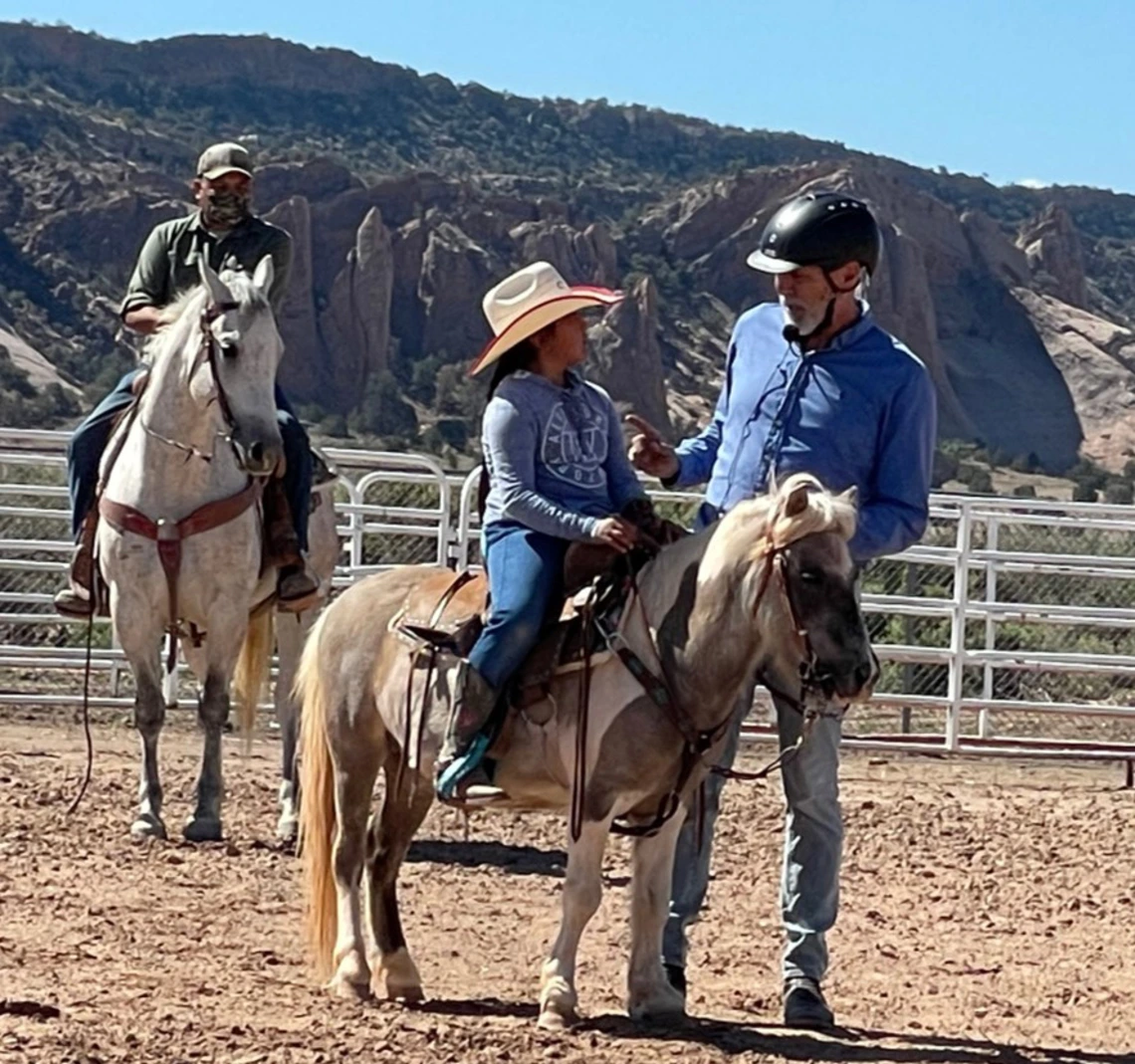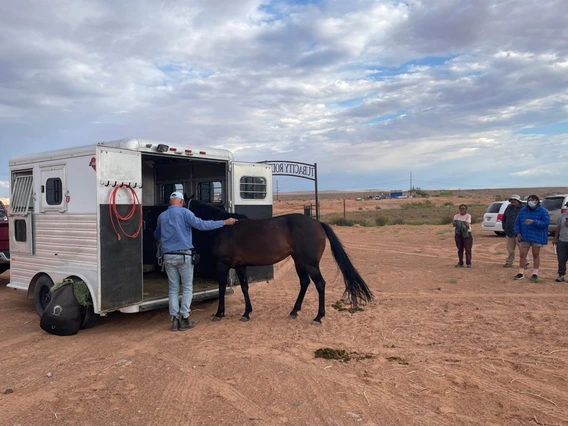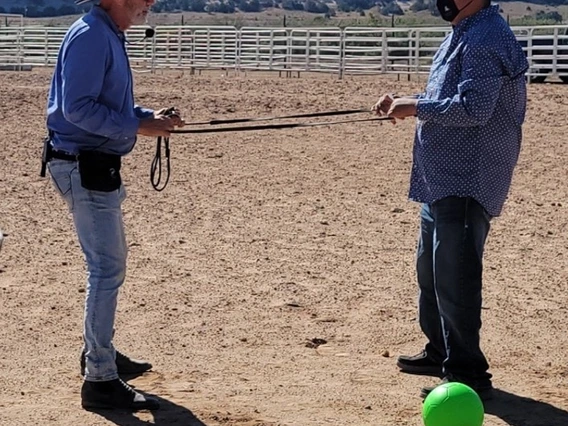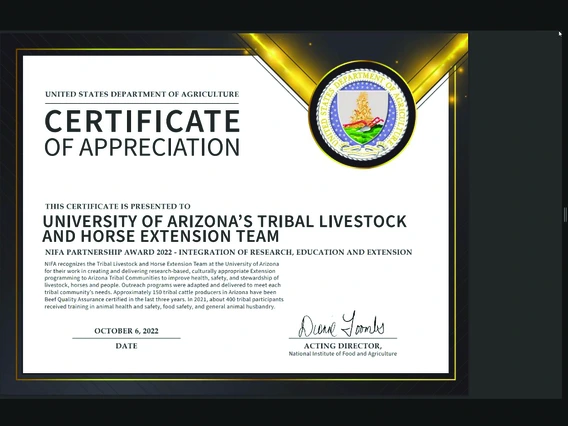International horse clinician helps tribal ranchers

Dr. Angelo Telatin, an internationally known horse trainer, competitor, and an Associate Professor at Delaware Valley University, brought his knowledge and experience in “Speaking the Horse’s Language” to horsemanship workshops for San Carlos Apache, Navajo, and Hopi tribal members this past June. Horses are culturally significant for many of the tribes, and are also very important to many livestock operations, especially ranches. Dr. Betsy Greene brought in her national colleague to teach tribal ranchers, youth, and community members about recognizing and utilizing the horse’s natural instincts and behaviors to improve their training techniques and become more effective handlers and riders.
Dr. Telatin explained and demonstrated effective behavior modification techniques for horses who are needle and/or fly spray shy or would not load in a trailer. Riders and handlers were able to put this knowledge to practice and quickly experience a noticeable improvement in their communication with, and response from, their horses.
This series of trainings was funded by a grant from the Native American Agriculture Fund (NAAF) as a part of the University of Arizona Tribal Livestock/Horse Extension Team programming, which was recently awarded the 2022 USDA NIFA Partnership Award for Mission Integration of Research, Education, and Extension.
As for Dr. Telatin, he said that our “Rez Roadshow” compacted clinics (4 half-day clinics in three days!), was a trip of a lifetime. He thoroughly enjoyed working with tribal members and learning about the different tribal cultures, seeing the beautiful Arizona country, and helping participants become better partners with their horses.
Drs. Telatin and Greene even had a late-night adventure after the Tuba City evening clinic, traveling to the home to one of the demonstration horses who wouldn’t load in a trailer. If you want to see the raw footage of the behavioral modification (by headlights) with a bit of an explanatory narrative for the owner, check out https://youtu.be/XXUqxUFzr8M.
2022 NIFA Partnership Award
Congratulations to UArizona Cooperative Extension’s Tribal Livestock/Horse Extension Team for being selected as the 2022 National Institute of Food and Agriculture Partnership Award winner in Category I: Mission Integration or Research, Education, or Extension.
This team has developed and worked together on a multifaceted Tribal Extension program to care for horses and livestock utilizing good stewardship methods for animals, land, and even humans to meet the needs of tribal ranchers, families, and youth. Extension and outreach efforts were formed from traditional learning and knowledge bases established from participating tribes. Culture and tradition are incredibly important for tribal members to communicate and share their knowledge within their communities. Being aware of traditional learning methods, our team was able to blend scientific information with the tribal traditions. We created several workshop opportunities for tribal producers. Our “Summer Cattlemen’s” series covered all basics of Beef Quality and Sheep Safety and Quality Assurance, horse health and biosecurity, along with proper animal nutrition during drought. For more program detail: https://tinyurl.com/NIFATribal.
Team Members: Betsy Greene, Juan Arias, Grey Farrell, Elisabeth Alden, Susan Sepkatewpa, Kristy Kinlicheenie, Alex Carlisle, Nathan Notah, Don Alamban, Madelyn Melchiors, Ashley Wright, Nate Brawley, Trent Teegerstrom, Debbie Reed, Jennifer Gardner Smith, and Joslyn Beard.

Dr. Angelo Telatin works with a young rider at the Window Rock, Arizona.

An exercise to demonstrate releasing pressure on the rein when the horse responds at the Window Rock, Arizona workshop.

The University of Arizona Tribal Livestock/Horse Extension Team programming was awarded the 2022 USDA NIFA Partnership Award for Mission Integration of Research, Education, and Extension.

